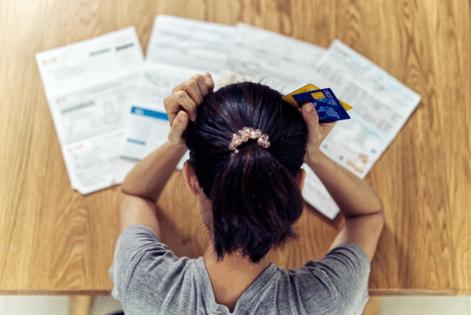Virginia lawmakers aim to protect debtors from further impoverishment
Published in News & Features
For people living with debt, getting back into the black can be a significant burden.
According to a new report, Virginia falls short in setting up guardrails for debtors to avoid being pushed further into poverty. This session, the General Assembly is expected to take up two pieces of legislation that advocates believe will help tackle the issue.
Advocates say getting out of debt is made more difficult by insufficient protections for debtors from garnishment — that’s when a judge can order wages and money in bank accounts to be directed to creditors instead.
“I understand that people need to collect the debt that’s owed them, but you reach a point where you take too much away from somebody, and then you just push them into poverty and they become an unproductive member of society,” said Jay Speer, executive director of the Virginia Poverty Law Center.
The report
from the National Consumer Law Center (NCLC), an economic justice advocacy group, assigned Virginia a grade of “D” for what it calls weak exemption laws designed to protect debtors from further impoverishment. That’s down from a “C” in 2023, a result of a change in how the organization calculated scores that put a greater emphasis on inflation.
The NCLC prioritizes five policies it says are designed to help people who owe money to achieve financial stability:
• Preventing creditors from seizing so much of the debtor’s wages that they fall below a living wage.
• Allowing the debtor to keep a used car of at least close to average value.
• Preserving the family’s home.
• Preserving a basic amount in a bank account so that the debtor’s funds are not cleaned out.
• Preventing seizure and sale of the debtor’s necessary household goods.
In Virginia, people who owe money can protect $5,000 in a bank account from garnishment, but it’s not an easy or necessarily inexpensive process, Speer said.
“Basically, it takes a lawyer,” he said. “Most people can’t afford a lawyer. They might qualify for legal aid, but lots of people don’t qualify for legal aid, and you’re stuck. You end up losing whatever you had in your bank account.”
When that happens, Speer said it can mean people falling behind on rent and utilities payments. The Virginia Poverty Law Center is advocating for two pieces of legislation the organization says will ease the burden. Those bills are expected to be filed for deliberation in the coming weeks.
The first, proposed by Del. Phil Hernandez, a Norfolk Democrat, would automatically protect that $5,000 from seizure during a debt lawsuit or bankruptcy. The second, proposed by Del. Carrie Coyner, a Chesterfield Republican, would end the 100% wage lien for tax debts. That’s the idea that for past due tax bills, the state government will ask employers to withhold all wages until the debt is paid. Virginia is the only state in the country that actively employs the practice, according to the VPLC.
“That doesn’t make any sense either,” Speer said. “How can folks survive without any of their wages? If that happens to them they end up just quitting, because we can’t work for no money.”
Speer said both the unprotected bank account seizures and the wage lien wind up being a loss to creditors in the long run too.
“The thing to keep in mind is that if you let one creditor have this much power over somebody, then all the other creditors don’t get paid either,” he said. “If somebody’s grabbing your bank account and freezing it, other creditors lose out because you’re not paying your rent, you can’t pay utilities and that sort of thing.”
________
©2024 The Virginian-Pilot. Visit at pilotonline.com. Distributed by Tribune Content Agency, LLC.







Comments